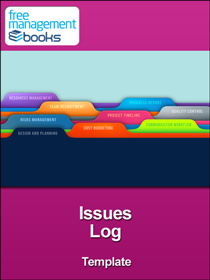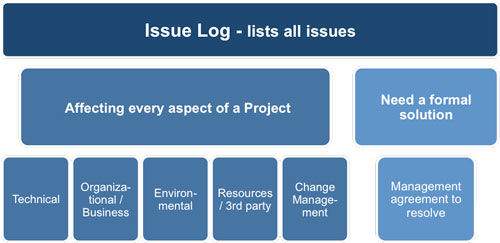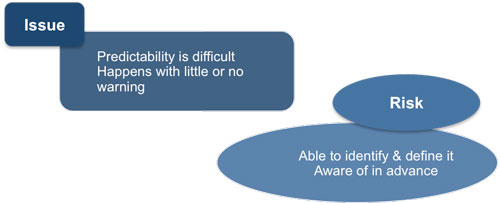
Project Issues Log Template
This template is designed to help you to identify and record issues that are impacting on the project. It also details who is responsible for implementing the agreed resolution.
By proactively managing issues that arise throughout the life of a project prolonged delays can be avoided, conflicts can be diffused before they become destructive and the end product will continue to meet end-user needs. This log tracks, analyzes and assigns a criticality to each issue that is drawn to the attention of the project manager.
Every project team needs a dependable way that they can highlight and discuss issues that occur during the project. An atmosphere of openness is needed in any project so that any member feels they can raise a concern that will be discussed and reviewed. The issue log enables this to occur in a structured and objective manner.
Issues can mean many things from lack of a key resource, staff joining the team late, technical failures to contract problems with third parties etc. They are not just problems but inconsistencies that occur as a project progresses, this may be gaps between work packages or schedules. All items referred to as an ‘issue’ if they are not addressed they will sabotage the project in any way.

It is one of the key documents a project manager requires as part of the overall monitoring process to ensure the smooth execution and implementation of a project. It integrates with several project management plans and is anything that will impact on the continuation of the project. The reporting of progress for each issue will follow the defined project procedure until it has been satisfactorily completed.
The record created by this log provides historical evidence of what issues occurred, how they were resolved and the impact it had on the project. One of the key benefits of issue management and its log is that ability to assign the responsibility for an issue’s resolution to a single individual and set a target date for it to be resolved by.
An issue could be anything that threatens project progress and would be defined as some aspect of the project that is already happening. Unlike risk which is something that may or may not happen at some point in the future.
In other words, a risk is something with a negative impact that may happen. Consequently, it is something you can plan for in the event it does occur. An organization can choose, based on costs for instance, to accept the risk and do nothing about it or to work to mitigate the risk to reduce the possibility of it happening.
On the other hand, an issue is something that has actually happened. It may or may not result from a previously identified risk, but it is something that must be addressed and remedied.

Where issues cannot be resolved informally, then raising it and documenting it on the issue log is a way to bring this to management attention to assist in resolving the problem. Among other information for each item raised on the issue log, it should state the individual or group who is responsible for resolving the issue, and the log should be updated until such time that the issue has been resolved.
The issue log is a key document that will be referred to and used in other individual project management plans. It records the common understanding of identified problems that have happened and the process set out in this communications plan ensure that all necessary people are kept informed of how the resolution is progressing.
It forms the backbone of intelligence for a project manager along with cost forecasts, work performance reports and schedule forecasts, telling him or her how their project is performing against its objectives. It is also the document that forms the bedrock of how a project manager identifies problems of various sorts. Firstly how these are affecting the team’s ability to perform as a cohesive unit. Secondly, stakeholder’s interests may be affected by the issue, which could impact the level of support they give to your project as its progresses.
